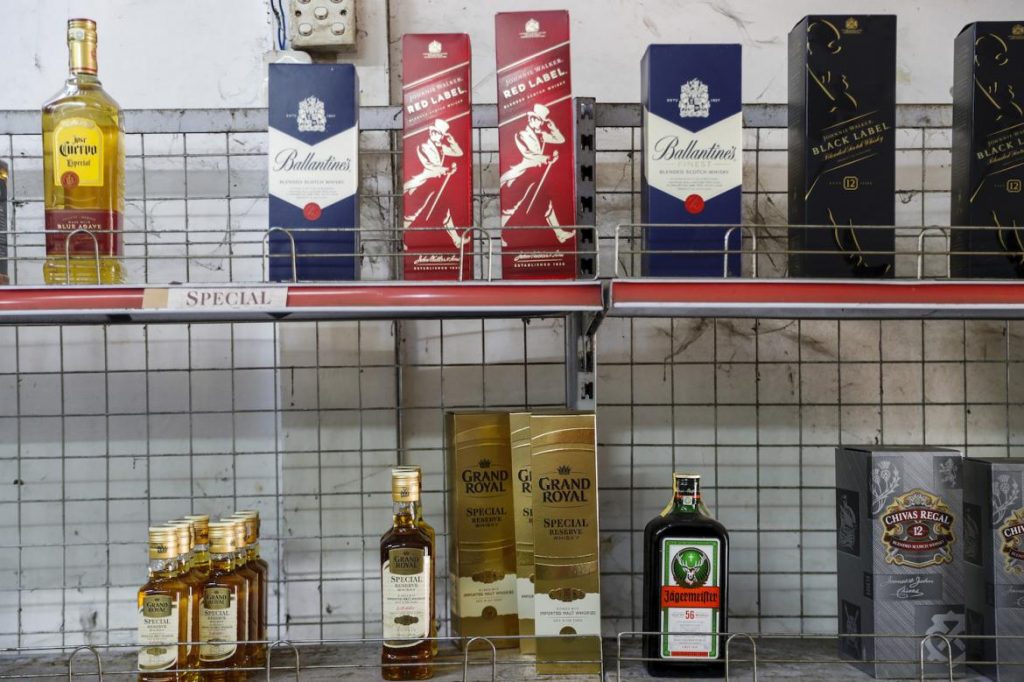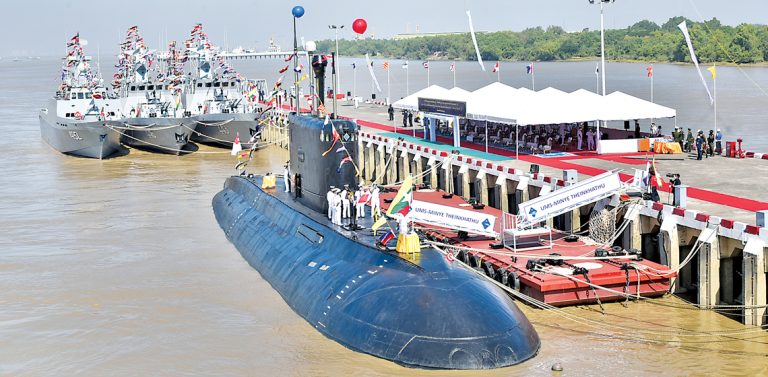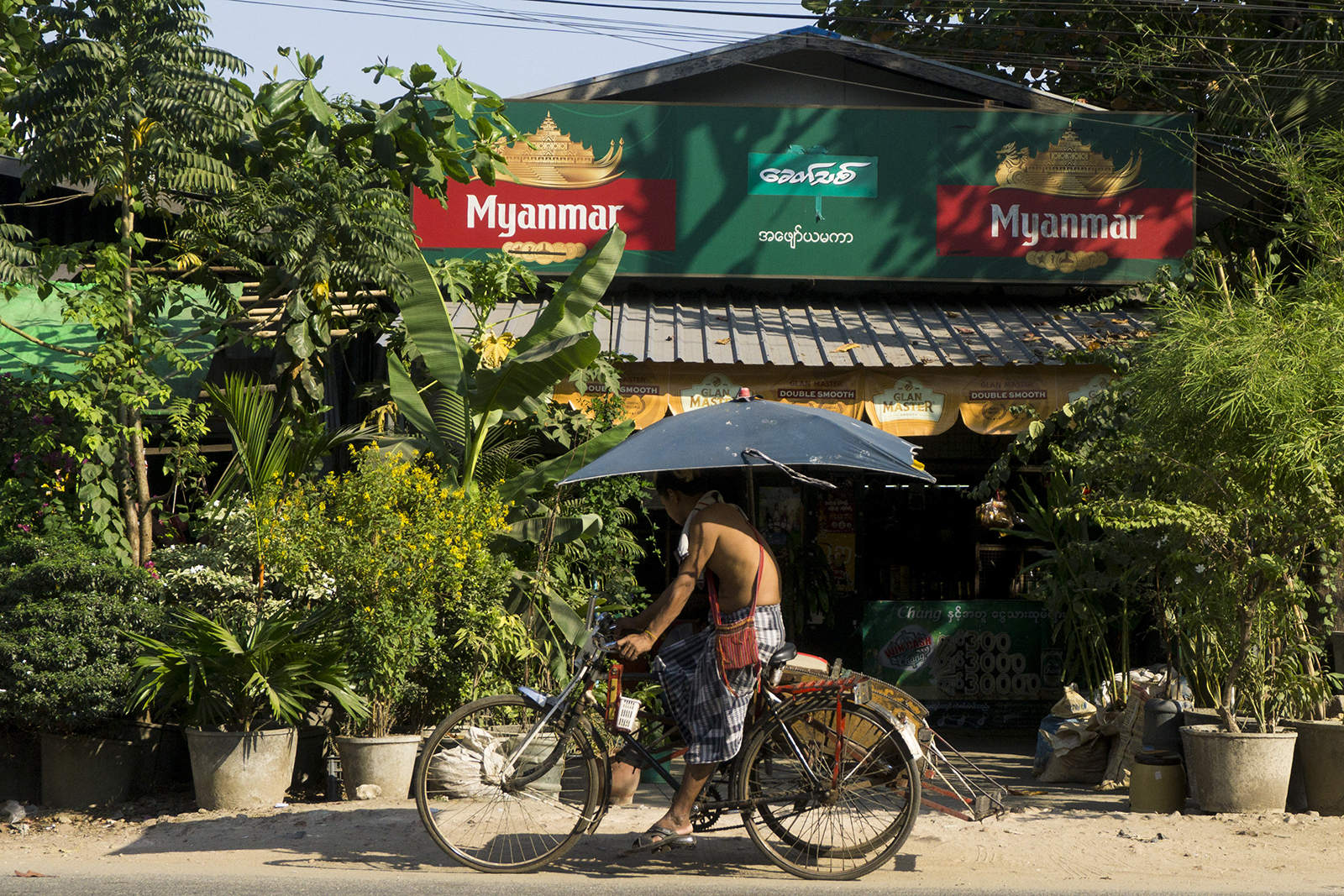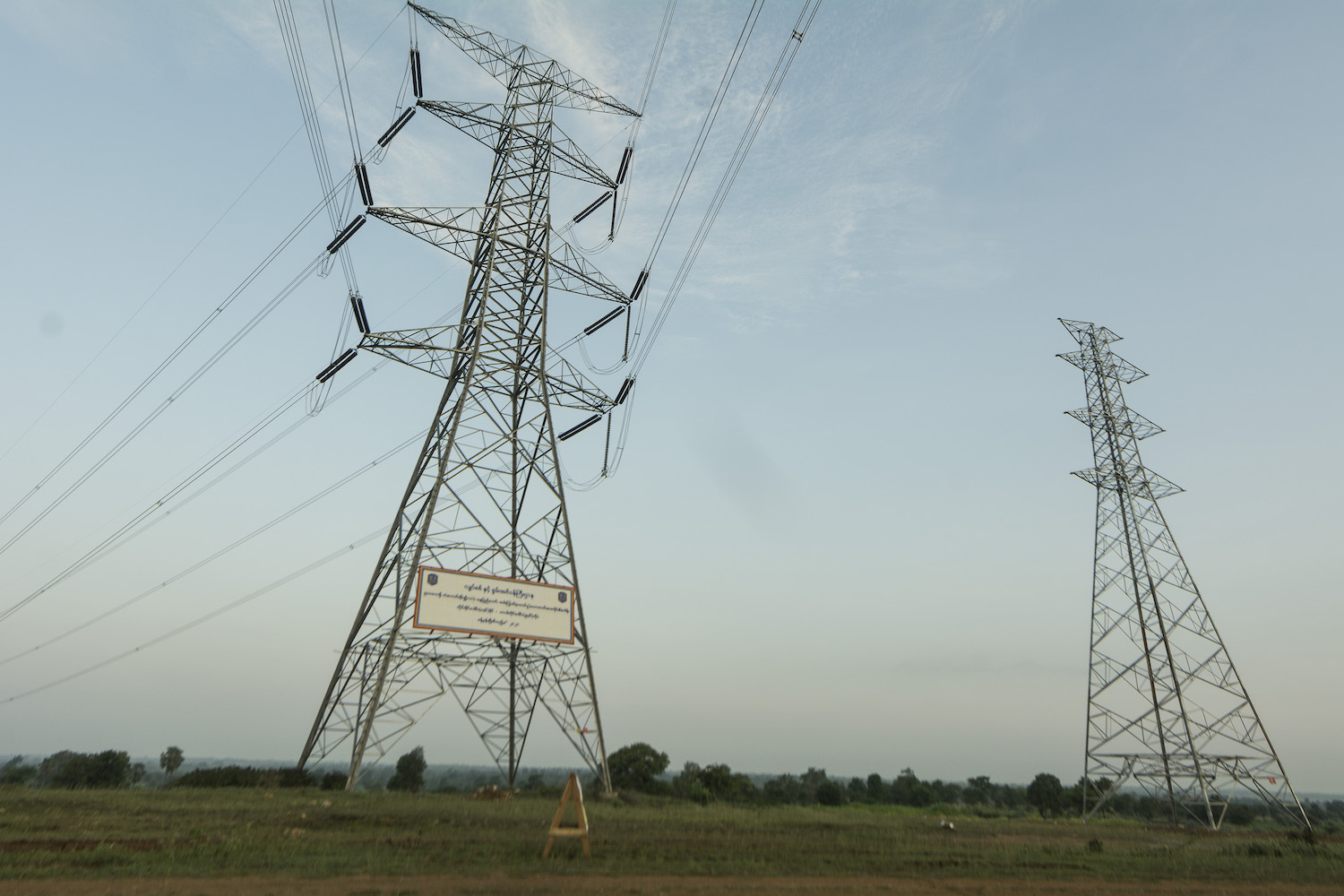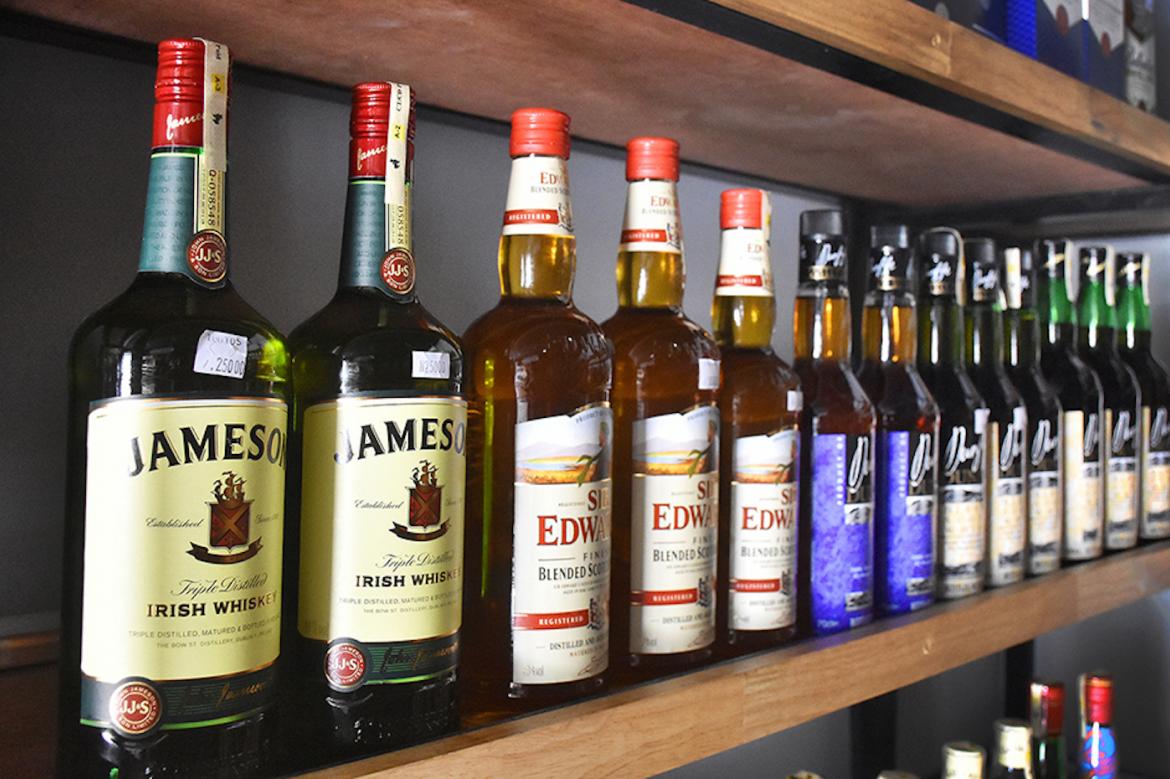The white-listing of imported liquor follows years of intense lobbying by foreign producers, but hopes for a reduction in smuggled spirits may be frustrated by high import taxes.
By KYAW YE LYNN | FRONTIER
Myanmar has ended a decades-old ban on liquor imports but high taxes mean the measure may not be enough to stem illicit trade in foreign spirits – at least in the short term.
The Ministry of Commerce on May 25 issued a notification removing liquor from a list of items that are banned from import, as well as a notification outlining procedures for companies to legally import foreign alcohol into the country.
The policy change is intended to meet market demand, ensure customers can access quality products, control illegal imports and increase tax revenues, the notification says.
The decision to open up the market is considered a significant reform, particularly given the widespread nature of smuggling and concerns about consumer safety.
Support independent journalism in Myanmar. Sign up to be a Frontier member.
Mr Cedric Retailleau, managing director for Southeast Asia at French drinks giant Pernod Ricard, said the May 25 notifications were “an important step” and the company would continue to engage with the government to encourage further market liberalisation.
“Progressive, step-by-step liberalisation of international spirits into Myanmar will be crucial to further tackling and reducing illicit trade and mitigating public health risks,” he said.
But the impact of the move may be limited initially because the notification blocks the import of any products with a value of less than US$8 a litre in order to protect local producers. Combined with customs duties and other taxes, a one-litre bottle of legally imported spirits will cost at least $20 a litre – approximately double the smuggled products available openly on the market.
Even officials involved in the process said they have doubts that it will initially have much effect on illicit trade in liquor, which is worth around $80 million a year, according to data from Myanmar’s export partners, and goes through trade gates controlled by ethnic armed groups. Legal imports, mostly through licensed duty free businesses, total less than $10 million a year.
“The way it is currently designed, I have a lot of doubt that the plan will actually work,” said one Ministry of Commerce director who is familiar with internal discussions over the sector liberalisation.
But Daw Cho Thet Mu, deputy director of the Trade Department’s policy section, told Frontier the $8 minimum cost, insurance and freight (CIF) value was set “to prevent the import of poor-quality alcohol”.
She insisted that the policy could also help to reduce illegal imports through the country’s porous borders. “Although alcohol imports are banned, products are sold openly in many areas of the country. We hope that creating a legal channel to import could impact illicit trade,” she said.
Retailleau from Pernod Ricard said the $8 minimum had not come as a surprise but he understood it to be a “temporary” measure intended to help the domestic industry “adapt to the market opening”.
“A reasonable CIF value would allow the end consumer to have access to legally imported international spirits in the premium categories at prices only slightly more expensive than tax-free products already present in Myanmar, without cannibalising the sales of locally-produced spirits,” he said.
Years of lobbying
The notifications follow years of intense lobbying from foreign spirits producers and their domestic partners to open up the market, and from some prominent local liquor companies to keep it shut.
Following high-profile raids on warehouses in 2013 and 2014, the Union Solidarity and Development Party government promised a phased liberalisation of alcohol imports. However, before leaving office it only issued rules allowing wine imports, in March 2015, leaving hotels and duty free shops as the sole legal importers of beer and liquor.
In 2018, Ministry of Commerce officials told Frontier that the government did not plan to change its policy on liquor imports during its current term in office, citing the trade deficit, the lack of support from domestic producers to change the policy and because the industry was not ready to compete against foreign rivals.
The Myanmar Liquor Association has staunchly opposed opening up the market. Association officials told Frontier at the time that this was because the country’s leading liquor tycoon, U Aung Moe Kyaw, founder of the Grand Royal brand, “is strongly opposed to market liberalisation and would oppose any move that he regarded as a threat to [Grand Royal]”. At the behest of local producers, the Yangon Region government in late 2018 launched a crackdown on the sale of foreign liquor, warning wholesalers and retailers they could face prison time if they sold spirits and were unable to prove it was legally imported.
Aung Moe Kyaw, whose Grand Royal empire was valued at $1 billion when ThaiBev purchased a 75 percent stake in 2018, has denied lobbying government officials. “We are not saying anything in opposition to liquor imports,” he told Frontier in a 2018 interview. “It’s not for me to give any idea or suggestion to the government.” He also insisted he was just an ordinary member of the MLA, and had no control
However, early in 2019 the President’s Office initiated a review of import policy at a meeting of the National Economic Coordination Committee. A decision was made to allow imports and the Ministry of Commerce was put in charge of drafting regulations.
The behind-the-scenes lobbying then shifted to the process of how to liberalise.
The Ministry of Commerce director told Frontier that the MLA had urged the ministry to lift the ban based on market segments.
“In every discussion with the ministry, MLA representatives said the liberalisation should only be for mid-range products – for example, those ranging from K7,000 to K20,000,” the official said. “It’s understandable that low-price foreign liquor shouldn’t be imported to prevent undercutting domestic producers. But I don’t really understand why they didn’t want higher-value liquor imported legally. It was strange.”
The ministry decided to ignore the MLA suggestion and developed full liberalisation plans for specific products, such as beer and liquor.
MLA secretary-2 U Win Thaw said the association did not yet have an official comment on the notification.
“In my personal opinion, though, it is a positive step for our industry,” he told Frontier.
Attention shifts to tax rates
The MLA then began suggesting that imported liquor be taxed at a high rate, the director said. The Ministry of Commerce supported the proposal and recommended to parliamentarians that they increase the tax on liquor in the 2019 Specific Goods Tax Law.
The Specific Goods Tax sets additional taxes for certain products, ranging from alcohol and cigarettes to vehicles and natural gas. First introduced in 2016, it is reviewed each year along with other tax laws. It applies regardless of whether the goods are imported or locally manufactured.
Pyithu Hluttaw Bill Committee secretary U Kyaw Soe Lin (NLD, Pyigyitagon), said the committee discussed the 2019 Specific Goods Tax Law with both the ministry and MLA, as well as other stakeholders. He declined to reveal what was said during the “closed-door meetings”.
The final outcome though had significant implications for those hoping to import liquor.
The specific goods tax rates for liquor are set based on price ranges. For the 2019 interim period the tax was about 22-25pc of the value for all products except those above K29,000, which were taxed at a flat 60pc based on their value. For example, under the 2019 law a K5,000 bottle of whisky would have tax of K1,097 (21.9pc) added, but a K50,000 bottle would have K30,000 (60pc) added. Earlier years had slightly different rates, such as a top bracket of K26,001 and above, but were generally similar.
But the 2019-20 law introduced the most significant change to date. While the tax on lower-priced liquor was increased slightly, to 25-30pc, the top tax band was reduced from above K29,000 to above K15,000.
Given that importers are limited to products with a minimum value of $8, and liquor is subject to a 50pc Customs duty, all imports are likely to fall into the top specific goods tax bracket and incur a 60pc levy. An $8 bottle of imported liquor is therefore likely to be at least $20 even before local distribution and retail costs are added.
Pyithu Hluttaw lawmaker U Bo Bo Oo (NLD, Sanchaung) said he had strongly opposed the reduction in the top tax rate for liquor in the Specific Goods Tax Law but had been outvoted by other lawmakers. He said it would only encourage smuggling because legally imported products would be too expensive.
“I am mostly happy with the [liberalisation] plan … but I think there is something wrong with the high taxing on higher-value liquor,” he said.
Bo Bo Oo said the decision had created an unlevel playing between local producers and foreign importers. Many foreign liquor producers are based in Europe and he said the government should also consider its diplomatic relationship with the bloc, which is the major buyer of Myanmar’s garments.
But he said the tax laws are reviewed and approved annually, so there would be an opportunity later this year to amend the rates.
“It seems the next debate on the union tax law could be a tough one,” he said.
Asked about the 60pc tax on liquor valued about K15,000, Win Thaw from the MLA said it should not be considered discriminatory because the specific goods tax also applies to local producers.
“I think it is fair. It would be unfair if imported liquor was exempt,” he said.
The fine print
Following the notification that removed the foreign liquor ban, notification 39/2020 sets out the procedures for importing liquor. These erect additional hurdles for foreign manufacturers and importers hoping for their products to compete in the Myanmar market, and local companies that want to distribute imported liquor.
To register as an importer, a company must be Myanmar-owned, have an exporter/importer registration certificate and have a director holding a distribution licence (known as FL-11) from the General Administration Department. Its warehouse or premises must be approved by the GAD and it needs to have an exclusive distributor arrangement with a foreign liquor manufacturer. Registration certificates must be renewed annually.
Each shipment of liquor will also require an import licence that must be applied for separately, by showing additional documents including an invoice or sales contract and Food and Drug Administration recommendation. Imports will only be allowed through Yangon port and Yangon International Airport.


